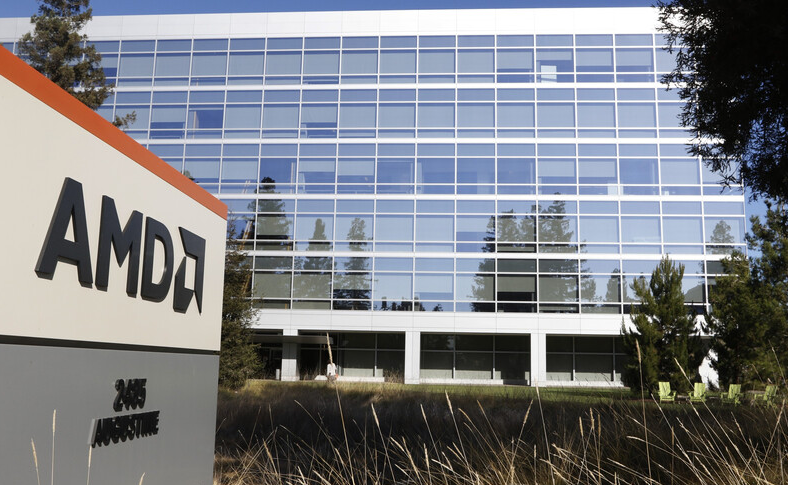 INFRA
INFRA
 INFRA
INFRA
 INFRA
INFRA
Chipmaker Advanced Micro Devices Inc. today announced its third acquisition in a span of just eight days.
It has recruited an unknown number of employees from an Intel Corp.-backed company called Untether AI Inc., which sells energy-efficient artificial intelligence inference chips for data centers and edge deployments.
News of the acquisition was first reported by CRN.com, which found out about the deal after spotting a post on LinkedIn by Justin Kinsey, president of the semiconductor recruitment firm SBT Industries Inc.
A spokesperson for AMD confirmed to CRN it has struck a deal to “acquire a talented team of AI hardware and software engineers” from the company. The new employees will help the chipmaker to advance its AI compiler and kernel development capabilities and enhance its system-on-chip design, verification and product integration processes, the company explained.
The acquisition appears to have been done and dusted last month, and it doesn’t include Untether Chief Executive Chris Walker, who formerly served at Intel until taking over the reins of the startup in early 2024. According to his LinkedIn profile, Walker stepped down from Untether AI last month.
The deal is somewhat unusual because AMD didn’t buy any of the company’s assets, but it nevertheless means Untether AI is shutting down its business for good. One of the company’s executives, Bob Beachler, told CRN that the deal “marks the end of Untether AI’s journey” and that it will no longer sell or support its existing “speedAI” processors or its “imAIgine” software development kit.
Toronto-based Untether AI was founded in 2018 and designed AI inference chips that featured an in-memory architecture to boost performance and reduce power consumption, making them suitable for low-energy edge applications such as sensors and drones. Its chips combined the memory and computing elements into the same package, rather than keeping them separate like traditional semiconductors do.
The approach has the benefit of eliminating the need to keep shunting data back and forth between different components within the chip, significantly reducing its energy requirements. It also makes computations faster, because data can go from the memory to the compute elements and back again in less time.
The startup got a lot of attention from bigger players in the chip industry, notably closing on a $125 million funding round led by Intel’s venture arm Intel Capital in July 2021. Since then it has quietly continued to make progress, launching its latest processor, the speedAI240 Slim AI inference accelerator card in October. At the time, the company said the new chip showed three times greater energy efficiency compared with rival chip hardware in the closed data center category.
Besides its relationship with Intel, Untether AI also had partnerships with the likes of Ampere Computing LLC, Arm Holdings Ltd. and NeuReality Inc.
Walker was interviewed by CRN as recently as April, and said that the company was seeing a lot of demand for its inference chips from clients looking for more efficient alternatives to Nvidia Corp.’s energy-hungry graphics processing units.
Because AMD didn’t buy Untether AI outright, the deal is really an “acquihire” rather than an acquisition, but it’s one that could be very important for the chipmaker, said Holger Mueller of Constellation Research Inc.
“Untether AI has developed some very promising technology with the combination of memory and compute in one module, upending the traditional way of making computer chips,” the analyst said. “If Untether AI’s team manages to do with AMD what it failed to do under its own steam — make a name for itself and establish real traction — then its technology could become a vital IP asset in future.”
The acquisition comes just two days after AMD announced it had bought a startup called Brium, which appears to have been operating in “stealth mode,” if its bare-bones website is any indication.
According to AMD’s press release, Brium specializes in the development of machine learning applications that enable AI inference. It seems to be interested in using Brium’s expertise to retrofit AI software so it can work with alternative hardware. This will help AMD to address the fact that the vast majority of AI developers optimize their software to run on Nvidia’s GPUs.
The acquisition of Brium came six days after AMD revealed plans to buy a startup called Enosemi Inc., which is a developer of silicon photonics chips that enable large clusters of AI accelerators to talk to each via fiber optic cables. That company will help AMD to boost its capabilities in network interconnects, as more customers look to combine thousands of processors together to power advanced AI workloads.
“AMD is on a real acquisition spree, and it’s looking to bolster its product portfolio,” Mueller added. “All three could prove very important later.”
Support our mission to keep content open and free by engaging with theCUBE community. Join theCUBE’s Alumni Trust Network, where technology leaders connect, share intelligence and create opportunities.
Founded by tech visionaries John Furrier and Dave Vellante, SiliconANGLE Media has built a dynamic ecosystem of industry-leading digital media brands that reach 15+ million elite tech professionals. Our new proprietary theCUBE AI Video Cloud is breaking ground in audience interaction, leveraging theCUBEai.com neural network to help technology companies make data-driven decisions and stay at the forefront of industry conversations.